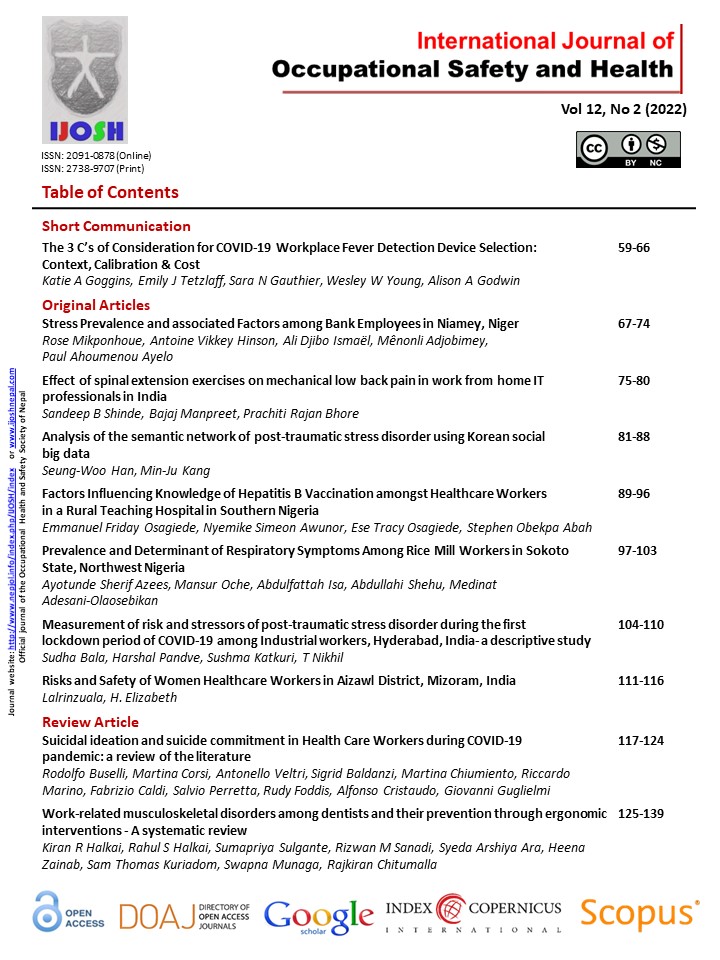Analysis of the semantic network of post-traumatic stress disorder using Korean social big data
DOI:
https://doi.org/10.3126/ijosh.v12i2.38957Keywords:
Stress Disorders, Big data, Semantics, Data miningAbstract
Introduction: In this study, we wanted to examine how post-traumatic stress disorder was discussed in Korean newspaper articles with semantic network analysis suitable for unstructured big data analysis.
Methods: This study analyzed 11,304 articles related to post-traumatic stress reported by four major Korean newspapers for three years from July 30, 2017, to July 30, 2020. R 3.6.2 program was used to calculate TF and TF-IDF values, and UCINET 6.0 and interlocked NetDraw was used for DC, EC, and CONCOR values.
Results: As a result of deriving 50 major keywords with high TF-IDF values in newspaper articles related to a post-traumatic stress disorder, TF-IDF values were high in the order of 'sick leave', 'solitary confinement', 'detention center', 'standing order', and 'prisoner'. As a result of conducting a CONCOR analysis to determine which sub-clusters keywords are classified into, the researcher derived each cluster based on words included: 'PTSD by crops' (cluster 1), 'PTSD by broadcasting accidents' (clusters), 'PTSD by farm livestock accidents' (cluster 3), and 'PTSD by various accidents' (cluster 4).
Conclusions Based on the research results, post-traumatic stress disorder needs to be managed nationally. As such, we intend to provide basic data for policy development and intervention programs.
Downloads
Downloads
Published
How to Cite
Issue
Section
License
Copyright (c) 2022 Seung-Woo Han, Min-Ju Kang

This work is licensed under a Creative Commons Attribution-NonCommercial 4.0 International License.
This license enables reusers to distribute, remix, adapt, and build upon the material in any medium or format for noncommercial purposes only, and only so long as attribution is given to the creator.





